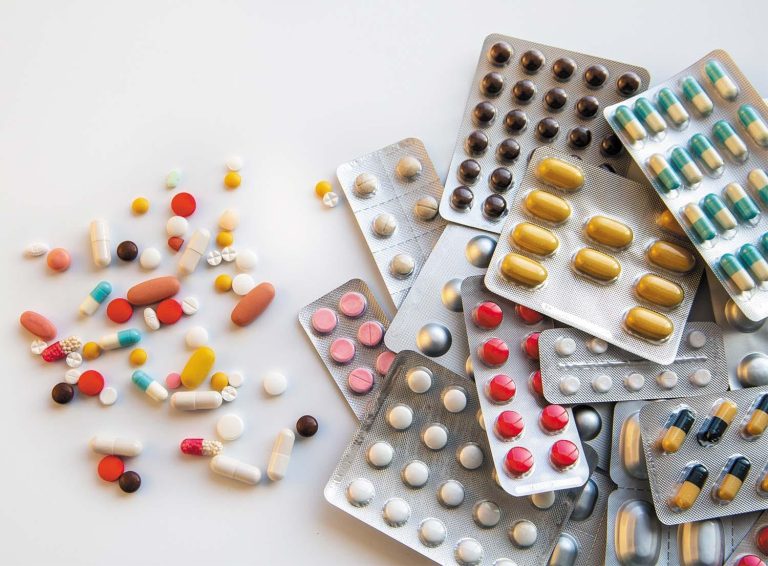A major medical device correction has been announced for nearly three million glucose-monitoring sensors after internal testing revealed that some units may provide inaccurate low glucose readings. Health authorities and medical experts have warned that such faulty readings could lead to improper treatment decisions, posing serious health risks for people living with diabetes.
The recall affects popular continuous glucose-monitoring (CGM) systems, specifically the FreeStyle Libre 3 and FreeStyle Libre 3 Plus models in the United States. These devices, which include a sensor and a companion mobile application, are widely used by patients to track glucose levels in real time. The sensor is typically applied to the back of the upper arm, and it continuously streams glucose readings directly to a smartphone or compatible reader.
Potential Health Risks
According to reports from the company, incorrect low glucose readings over an extended period could result in inappropriate management of blood sugar. For example, a person may consume excessive carbohydrates unnecessarily, delay essential insulin doses, or take other corrective measures based on inaccurate data. These decisions may lead to serious health complications, ranging from hypoglycemia and hyperglycemia to more severe outcomes including injury or death.
The company emphasized that the issue was identified internally and is tied to a single production line where sensors may have been expired, mishandled, or otherwise compromised. Measures have been taken to resolve the problem, and the company reassured patients and healthcare providers that production of replacement sensors and new units will continue without major supply disruptions.
Globally, the company has reported 736 severe adverse effects potentially linked to the issue. Among these, 57 were reported in the United States, and seven deaths have been associated with the faulty sensors, though none occurred within the United States. While these numbers remain relatively low compared to the total number of affected devices, the potential risks have prompted a swift response to prevent further complications.
Instructions for Consumers
Patients using affected sensors are urged to take immediate action. Anyone currently wearing a sensor suspected of being impacted is advised to stop using it and safely discard it. Consumers can verify whether their device is part of the affected batch by visiting FreeStyleCheck.com or by contacting the toll-free customer service line at 1-833-815-4273. The customer service line is available seven days a week from 8 a.m. to 8 p.m. ET. The company will replace any potentially faulty sensors free of charge.
For ongoing glucose monitoring, users are advised to rely on a standard blood glucose meter or the built-in meter on the FreeStyle Libre 3 reader. This ensures that treatment decisions are based on accurate readings rather than potentially faulty sensor data. The company clarified that FreeStyle Libre 3 readers, mobile apps, other Libre-branded products, and Abbott biowearables have not been affected by the recall.
About the Company
Abbott Laboratories, headquartered in Abbott Park, Illinois, is a global healthcare company providing diagnostic products, medical devices, nutritionals, and branded generic medicines to consumers in more than 160 countries. The company employs over 114,000 people worldwide and has long been a leader in diabetes care, particularly in the development of CGM systems designed to help patients manage their condition more effectively.
Diabetes Overview and Public Health Context
Diabetes remains a significant public health challenge in the United States. According to the American Diabetes Association, more than 38 million Americans have been diagnosed with the condition, which comes in three main forms: Type 1, Type 2, and gestational diabetes. Each type presents unique challenges for management and requires careful monitoring of blood glucose levels to prevent complications.
Type 1 diabetes is an autoimmune disease in which the body’s immune system mistakenly attacks and destroys the beta cells in the pancreas responsible for producing insulin. Insulin is a hormone critical for regulating blood glucose and converting it into energy for the body. Type 1 diabetes is typically diagnosed in children and young adults, and patients require lifelong insulin therapy to maintain blood glucose within a safe range.
Type 2 diabetes, the most common form, occurs when the body becomes resistant to insulin or the pancreas fails to produce enough of the hormone. This form of diabetes usually develops in middle-aged or older adults but is increasingly being diagnosed in younger populations due to rising obesity rates and sedentary lifestyles. Without proper management, Type 2 diabetes can lead to severe complications, including cardiovascular disease, nerve damage, kidney failure, and vision loss.
Gestational diabetes, on the other hand, is a form of diabetes that develops during pregnancy and typically resolves after childbirth. It affects up to 9 percent of pregnancies annually in the United States. While often temporary, gestational diabetes increases the risk of complications for both the mother and child and can increase the likelihood of developing Type 2 diabetes later in life.
Symptoms and Complications
The symptoms of diabetes, regardless of type, can include excessive thirst, frequent urination, fatigue, blurred vision, and numbness or tingling in the hands or feet. Long-term complications, if the disease is left unmanaged, can be life-threatening. These include cardiovascular disease, chronic kidney disease, hearing loss, eye disease such as retinopathy, and a heightened risk of infections. For patients reliant on continuous glucose monitoring, accurate sensor readings are vital to maintaining proper treatment and avoiding dangerous fluctuations in blood sugar levels.
Industry Response and Regulatory Oversight
Medical device recalls of this magnitude often trigger regulatory oversight from the U.S. Food and Drug Administration (FDA) and other health authorities globally. These recalls are intended to prevent patient harm while ensuring that healthcare providers and patients have the information necessary to make safe treatment decisions. The FDA has a framework in place to monitor adverse events and to ensure that replacement devices meet rigorous safety standards.
Abbott’s swift identification of the issue, combined with proactive measures to replace affected sensors, reflects a broader trend in the medical device industry toward enhanced quality control and post-market surveillance. These actions are critical in maintaining trust among patients and healthcare professionals who rely on continuous glucose monitoring for diabetes management.
Patient Guidance and Recommendations
For patients currently using the affected sensors, experts advise immediate verification of device status and temporary reliance on traditional glucose meters if a sensor is confirmed to be impacted. Healthcare providers should be consulted to adjust insulin or medication regimens as necessary to prevent hypo- or hyperglycemic events. The company emphasizes that patients should not ignore symptoms of low or high blood sugar even if the sensor readings appear normal. Clinical judgment remains essential in diabetes management, particularly in light of the recent device recall.
The Role of CGM Systems in Modern Diabetes Care
Continuous glucose-monitoring systems like FreeStyle Libre 3 and Libre 3 Plus have transformed diabetes care by allowing patients to track glucose levels in real time and make timely adjustments to diet, exercise, and medication. These devices reduce the need for frequent finger-stick testing, improving convenience and quality of life. However, the reliance on technology also underscores the importance of device accuracy, as even small errors can have significant consequences for patients with tight glucose management targets.
Experts note that while technological innovations have greatly improved diabetes outcomes, patients and clinicians must remain vigilant in monitoring device performance and responding to any inconsistencies. The recall serves as a reminder of the potential risks associated with medical devices and the importance of regulatory oversight and ongoing quality assurance.
Conclusion
The recent correction affecting millions of glucose sensors highlights the critical balance between innovation, patient safety, and regulatory compliance in the medical device industry. While Abbott Laboratories has taken decisive steps to identify and correct the issue, the recall underscores the importance of vigilance for patients and healthcare providers alike. Continuous glucose-monitoring systems remain a vital tool for diabetes management, but this incident illustrates that technological advancements must always be accompanied by rigorous quality control and prompt corrective action when risks are identified.
For those using the FreeStyle Libre 3 or 3 Plus sensors, immediate verification and consultation with healthcare providers are essential. By taking these steps, patients can ensure continued safe and effective management of their diabetes while awaiting replacement sensors. The company’s proactive approach, combined with public awareness efforts, aims to minimize potential harm and maintain confidence in CGM technology moving forward.

Emily Johnson is a critically acclaimed essayist and novelist known for her thought-provoking works centered on feminism, women’s rights, and modern relationships. Born and raised in Portland, Oregon, Emily grew up with a deep love of books, often spending her afternoons at her local library. She went on to study literature and gender studies at UCLA, where she became deeply involved in activism and began publishing essays in campus journals. Her debut essay collection, Voices Unbound, struck a chord with readers nationwide for its fearless exploration of gender dynamics, identity, and the challenges faced by women in contemporary society. Emily later transitioned into fiction, writing novels that balance compelling storytelling with social commentary. Her protagonists are often strong, multidimensional women navigating love, ambition, and the struggles of everyday life, making her a favorite among readers who crave authentic, relatable narratives. Critics praise her ability to merge personal intimacy with universal themes. Off the page, Emily is an advocate for women in publishing, leading workshops that encourage young female writers to embrace their voices. She lives in Seattle with her partner and two rescue cats, where she continues to write, teach, and inspire a new generation of storytellers.








